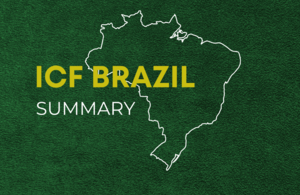ICF Brazil
Brazil is one of the ICF's top four recipients with investments of over £510 million.

International Climate Finance
International Climate Finance is a UK government commitment to support developing countries to respond to the challenges and opportunities of climate change.
ICF Brazil
Brazil is one of the ICF’s top four recipients, and ICF investments in Brazil focus on the 5 pillar of the UK-Brazil Green and Inclusive Growth Partnership.
The UK has committed £5.8 billion in ICF between 2016-2021, the amount doubled to £11.6 billion between 2021-2025. To date, roughly £510 million of ICF has been committed to programmes that operate in Brazil.
Climate policy objectives in Brazil:
-
we seek to expand and strengthen collaboration with Brazil as a major player on climate and development. We have historic collaboration as Brazil’s second partner on science and third on climate, with over £510M in International Climate Finance programmes committed since 2016.
-
both UK and Brazil are committed to address the global climate crisis, promote sustainable development, and foster a just and inclusive ecological transition. Our new UK-Brazil Green and Inclusive Growth Partnership launched in May 2023 sets out 5 initial pillars in which we will drive strengthened cooperation and dialogue:
1) Climate: Implementing ambitious NDCs and adaptation strategies, including for the protection of oceans and coastal zones, Net Zero goals and targets, and a COP-to-COP exchange, under the United Nations Framework Convention on Climate Change (UNFCCC) mandate.
2) Forests: Fostering biodiversity goals, combatting deforestation, tackling illegal gold supply chains, promoting socio-bioeconomy and non-timber products, with a view to promote the rights and engagement of indigenous peoples and local communities.
3) Sustainable Agriculture: Scaling up sustainable agriculture practices & promoting responsible supply chains.
4) Energy: Promoting a just and fair energy transition and the decarbonisation of industry.
5) Finance: Promoting a just and inclusive economic transition, green finance, carbon markets and other approaches, including results-based payments, in addition to mobilising new and additional financial resources, including through private investments.
Updates to this page
-
Values and programmes updated.
-
Programmes and amount of the programmes were updated.
-
First published.